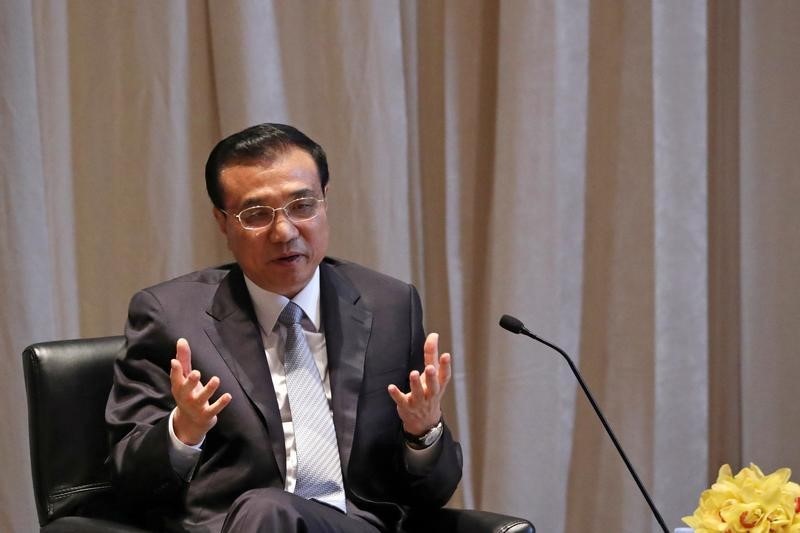By David Brunnstrom
UNITED NATIONS (Reuters) - Chinese Premier Li Keqiang said on Wednesday China would promote economic development by opening up its economy more widely as experience showed closed door policies only brought stagnation.
"We will promote development through expanding, opening up," Li said in a speech to the annual United Nations General Assembly.
"China's experience in the past decades has proven that a closed-door policy only leads to stagnation and backwardness ... China will open its door even wider to the outside world."
Li said the global economy was faced with insufficient aggregate demand and prominent structural conflicts and could not afford long-term sluggishness if sustainable development was to be maintained.
"We need to employ various kinds of effective policy instruments in a holistic manner and combine demand-management with supply-side reform and short-term policies with long-term policies," he said.
"Major economies need to conduct responsible policy making and coordinate macro economic policy while considering their own growth," he added.
On Tuesday, Li spoke at a business dinner in New York and responded to complaints from foreign business leaders about restricted access to the Chinese market by saying that China was open to foreign investment, although some economic sectors were not yet mature.
As an example of China's willingness to open up its markets, Li said China had decided to designate a Chinese investment bank as a clearing bank for renminbi business in New York and welcomed foreign banks in the city which met eligibility requirements to become clearing banks for the currency.
He also said China would soon allow imports of beef on the bone from the United States, now that Chinese quarantine procedures had been completed.
Li pledged on Tuesday that China would not engineer a devaluation of its currency to boost exports for its economy, which is growing at its slowest rate in two decades.

Some critics in Washington have charged that Beijing is still manipulating its currency, although the U.S. Treasury says it is not undervalued.